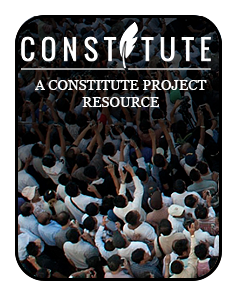The use of the name Crna Gora or Black Mountain (Montenegro) began in the 13th century in reference to a highland region in the Serbian province of Zeta. The later medieval state of Zeta maintained its existence until 1496 when Montenegro finally fell under Ottoman rule. Over subsequent centuries, Montenegro managed to maintain a level of autonomy within the Ottoman Empire. From the 16th to 19th centuries, Montenegro was a theocracy ruled by a series of bishop princes; in 1852, it transformed into a secular principality. Montenegro was recognized as an independent sovereign principality at the Congress of Berlin in 1878. After World War I, during which Montenegro fought on the side of the Allies, Montenegro was absorbed by the Kingdom of Serbs, Croats, and Slovenes, which became the Kingdom of Yugoslavia in 1929; at the conclusion of World War II, it became a constituent republic of the Socialist Federal Republic of Yugoslavia. When the latter dissolved in 1992, Montenegro federated with Serbia, creating the Federal Republic of Yugoslavia and, after 2003, shifting to a looser State Union of Serbia and Montenegro. In May 2006, Montenegro invoked its right under the Constitutional Charter of Serbia and Montenegro to hold a referendum on independence from the state union. The vote for severing ties with Serbia barely exceeded 55% - the threshold set by the EU - allowing Montenegro to formally restore its independence on 3 June 2006.
Montenegro is a parliamentary republic.
Source: CIA World Factbook
Members:
Resources
Displaying 1 - 5 of 7Regulation determining the public interest for the expropriation of immovable property for the construction of small hydropower plants on the river Đurička, Municipality of Plav.
This Regulation determines the effective national public interest and related actions in terms of concessions and land expropriation as regards the construction of several small hydropower plants on the Montenegro land area situated on the boundaries of the river called Đurička (Municipality of Plav, Republic of Montenegro), including the areas of its small flowing/tributary side rivers (full coordinates and land parcels description is part of the text).
Implements: Law on expropriation. (2009-03-27)
Law amending the Law on state survey and real estate cadaster.
This Law amends various provisions stipulated by the Law on state survey and real estate cadaster (Official Gazette of the Republic of Montenegro 29/2007).Significant changes are related to the general terms, definitions and denominations; annual plan of works (updated provisions introducing some new provisions); specific rules for geodetic organization related matters; certain financial/fiscal costs/fees as regards the cadaster issues; and offences and consequential penalties.
Amends: Law on state survey and real estate cadaster. (2007-05-15)
Law on state property.
This Law closely regulates various issues (administrative, legal, procedural, technical) regarding the effective use, management and disposal of state owned properties (mobile and immovable), including the land and agricultural land (on the territory of the Republic of Montenegro).The Law is divided into VIII Chapters and 77 articles, including the offences and related penalties (see Chapter VII).
Constitution of Montenegro 2007 (rev. 2013)
The constitution was adopted by parliament.
Law on state survey and real estate cadaster.
This Law regulates the issues regarding the state survey, the real estate cadastre and the registration of rights real estate, the cadastre of the water supply pipelines, the basic state map and topographic maps, the boundary of the state border and other specific issues of importance for the state survey and cadaster as official state mapping/survey register.The Law is divided into XIX Chapters and 192 articles, including the offences and related penalties (see Chapter XVIII).
Amended by: Law amending the Law on state survey and real estate cadaster. (2011-06-22)



